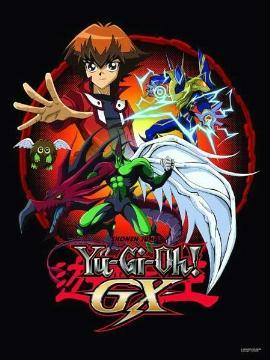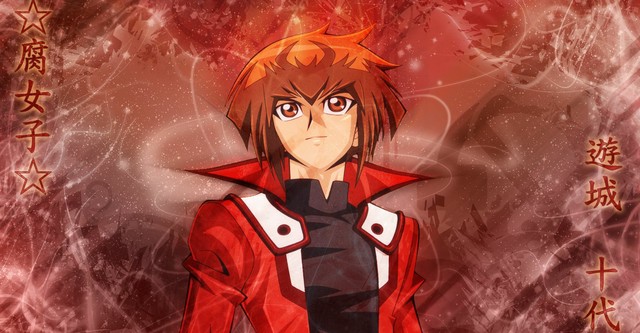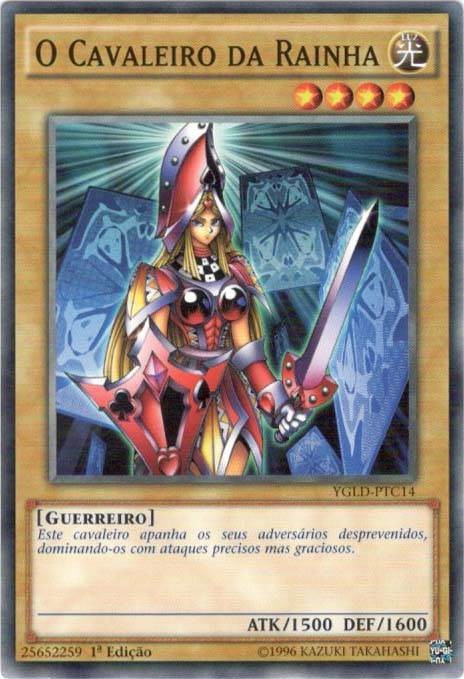Today is a great day, you have been admitted to the world-renowned 'Duel Academy', a school bringing together the best duelists in the count. Yugi GX single cards are Hot and everyone is going crazy as Yu-gioh enters into the new generation of the Yugi-oh GX series. A Yugioh GX episode, click. Download Read Yugioh Gx. Time to wa-wa-watch this timeline video! I'm breaking down how Duel Monsters, 5Ds, and GX are all connected and tries to see how Arc-V and Zex. Original Series Theme Song. Yugioh GX Intro (Dual Guitar Cover with Solo) - Duration: 1:07.
| Yu-Gi-Oh! GX | |
| 遊☆戯☆王デュエルモンスターズGX (Yū☆gi☆ō Dyueru Monsutāzu Jī Ekkusu) | |
|---|---|
| Genre | Action, Adventure, Fantasy, Comedy |
| TV anime | |
| Directed by | Hatsuki Tsuji |
| Produced by | Nihon Ad Systems Inc. |
| Written by | Shin Yoshida, Jun Maekawa, Akemi Omode, Yasuyuki Suzuki |
| Music by | Yutaka Minobe |
| Studio | Studio Gallop |
| Network | TV Tokyo |
| English network | Cartoon Network, The CW4Kids, Toonzai FUNimation Channel YTV CITV Channel, NickToons RTÉ Two Network Ten, Nickelodeon, Cartoon Network TV2 |
| Original run | October 6, 2004 – March 26, 2008 |
| Episodes | 180 (List of episodes) |
| Manga | |
| Written by | Naoyuki Kageyama |
| Published by | Shueisha |
| English publisher | Viz Media |
| Demographic | Shōnen |
| Magazine | V-Jump |
| Original run | December 17, 2005 – ongoing |
| Volumes | 8 |
| Anime and Manga Portal | |
Yu-Gi-Oh! GX, known in Japan as Yu-Gi-Oh! Duel Monsters GX(遊☆戯☆王デュエルモンスターズGXYūgiō Dyueru Monsutāzu Jī Ekkusu?), is an animespin-off and sequel of the original Yu-Gi-Oh! Duel Monsters anime. It aired in Japan on TV Tokyo between October 6, 2004 and March 26, 2008, and was succeeded by Yu-Gi-Oh! 5D's. Yu-Gi-Oh! GX follows the exploits of Jaden Yuki (Judai Yuki in the original Japanese version) and his companions as he attends Duel Academy.
|
Plot
Set ten years after Yu-Gi-Oh!, GX follows a young boy named Jaden Yuki who, along with his friends, attends Duel Academy, a special institute founded by Seto Kaiba, in the hopes of becoming the next King of Games. Using his Elemental Hero deck and a Winged Kuriboh given to him by Yugi Moto, Jaden faces various challenges against other students, teachers and other mysterious beings.
Science Fiction

For the first two years at Duel Academy, the main cast faces major threats including the Shadow Riders, who intend to revive the Sacred Beasts by creating a strong dueling presence on the island and obtaining the Seven Spirit Keys (held by Jaden Yuki, Zane Truesdale, Alexis Rhodes, Bastion Misawa, Chazz Princeton, Dr.Vellian Crowler and Lyman Banner) ,[2] as well as the Society of Light, which intends to enslave humanity with the mind control satellite of Misgarth.[3] During the third year, Duel Academy is transported to another world–a desert plane with three suns and resident Duel Monster spirits–right into the hands of the Martin Empire.[4] Upon returning home, Jaden and a select group of his partners dive into the rift left in their escape to recover their missing companion, Jesse Anderson, and embark through second and third worlds called Dark World. Jaden and friends meet up with an underground group that intends to fight the Dark World Order. During the duel that was Jaden vs Brron: Mad King of Dark World, Chazz, Hassleberry, Alexis, Ojama Green, Ojama Black, and Atticus are sent 'to the Stars'. After Jaden wins, he feels completely alone, and the spirit of the Supreme King takes over Jaden's body. Jim and Axel get sent to the stars trying to bring Jaden back to his normal self. Jaden overcomes his fear of the dark power that controlled him. During those very dark times, they find themselves face to face with the vindictive Yubel. When Jaden realizes the connection between Yubel and his past self, he uses Super Polymerization to fuse his soul with Yubel's, giving him certain powers and setting his friends free. Jaden's exact words were, 'I fuse my soul with Yubel's!'.

In their final adventure, Jaden and his friends deal with the mysterious Trueman, a dark agent who copies the identity of his defeated opponents and seemingly wipes out their existence with them, trapping them in a nightmarish realm where they are mentally tortured by their personal failings. When a solar eclipse draws near, Trueman is revealed to be working for the real mastermind behind the vicious plot around the entire season - the former Shadow Rider, Nightshroud, using Yusuke Fujiwara as an avatar. Jaden and Jesse form a tag team to defeat Fujiwara and later Nightshroud himself in order to save the rest of the humanity from his World. After Jaden graduates, he is sent back in time in order to have an opportunity to duel with a younger Yugi Moto.
Characters
Yu-Gi-Oh! GX sports many different characters. The principal cast is composed of the series' hero Jaden Yuki, the passionate Alexis Rhodes (Asuka Tenjōin) and her brother Atticus (Fubuki Tenjōin), the easily discouraged but determined Syrus Truesdale (Shō Marufuji), elitist Chazz Princeton (Jun Manjōme), the analytic Bastion Misawa (Daichi Misawa), the strong-willed Tyranno Hassleberry (Tyranno Kenzan), and the love-struck Blair Flannigan (Rei Saotome). Supporting characters often have connections to the educative or professional dueling worlds, and include Obelisk Blue professor Vellian Crowler (Chronos de Medici), duelist-turned-Industrial Illusions designer Chumley Huffington (Hayato Maeda), and professional duelists Zane Truesdale (Ryo Marufuji) and Aster Phoenix (Edo Phoenix). A group of foreign duelist champions, consisting of Jesse Anderson (Johan Andersen), Axel Brodie (Austin O'Brien), Adrian Gecko (Amon Garam) and Jim Crocodile Cook, along with the new professor, Thelonius Viper (Professor Cobra), would also find a place in Duel Academy's student body in the third year. In the fourth season a mysterious student named Yusuke Fujiwara appeared at the Duel Academy. The vast majority of said characters are either friends, rivals or enemies of Jaden Yuki, who seems to attract both friendship and trouble.
Antagonists of the series range from elderly Kagemaru and the enslaved Shadow Riders (Seven Stars Assassins), the manipulative Sartorius (Takuma Saiou), the deranged Duel Monster Spirit Yubel and the terrifying Nightshroud (Darkness).
Production
Yu-Gi-Oh! GX is produced by Nihon Ad Systems, Inc., and directed by Hatsuki Tsuji.[5] Scripts are prepared by an alternating lineup of writers–Shin Yoshida, Jun Maekawa, Akemi Omode, Yasuyuki Suzuki–with music arrangements by Yutaka Minobe.[5] Takuya Hiramitsu is in charge of sound direction, supervised by Yūji Mitsuya. Character and monster designs are overseen by Kenichi Hara, while Duel layout is overseen by Masahiro Hikokubo.[5]
The 'GX' in the series' title is short for the term 'Generation neXt'. 'GENEX' was conceived as the series' original title, as can be evidenced in early promotional artwork. It also refers to the GX tournament that takes place between episodes 84 and 104.
The program is divided into episodes classified as 'turns'. The title sequence and closing credits are accompanied by lyrics varying over the course of the series, with the former immediately followed by an individual episode's number and title. Eyecatches begin and end commercial breaks halfway through each episode; in the first season, there were two eyecatches per episode, usually showcasing the opponents and their key monsters for a given episode while in later seasons, a single eyecatch appears with only the duelists. After the credits, a preview of the next episode, narrated most frequently by KENN and Masami Suzuki, is made, followed by a brief 'Today's Strongest Card' segment.
Media
Anime
The 180-episode series was produced by Studio Gallop and aired in Japan on TV Tokyo between October 6, 2004 and March 26, 2008, and was followed by Yu-Gi-Oh! 5D's.[6]
It was subsequently licensed by 4Kids Entertainment and adapted into English with the title Yu-Gi-Oh! GX, picked up by Cartoon Network and 4KidsTV in North America, where it is also distributed by Warner Bros. Television Animation. Like previous 4Kids adaptations, several changes were made from the original Japanese version, including the names and personalities of characters, the soundtrack, the appearance of visuals such as Life Point counters, and the appearance of cards. The story and some of the visuals are also edited to remove references to death, blood, violence and religion in order to make the series suitable for a younger audience.[7] These edits are also used in various localizations of the show in countries outside of Asia where 4Kids had distribution rights.

Dubbed episodes were recently uploaded onto 4Kids' Youtube page until March 29, 2011, when Nihon Ad Systems and TV Tokyo sued 4Kids and terminated the licensing agreement for the Yu-Gi-Oh! franchise.[8] The fourth season has not been dubbed, as it was replaced by the North American airing of Yu-Gi-Oh! 5D's in September 2008.
The Japanese version uses eight pieces of theme music, four opening themes and four ending themes. For episodes 1-33, the opening theme is 'Fine Weather Hallelujah' (快晴・上昇・ハレルーヤKaisei Josho Hareruya?) by Jindou, while the ending theme is 'Genkai Battle' (限界バトルGenkai Batoru?) by JAM Project. For episodes 34-104, the opening theme is '99%' by BOWL while the ending theme is 'Wake up your Heart' by KENN. For episodes 105-156, the opening theme is 'Teardrop' (ティアドロップTiadoroppu?) by BOWL while the ending theme is 'The Sun' (太陽Taiyou?) by Bite the Lung. For episode 157-180, the opening theme is 'Precious Time, Glory Days' by Psychic Lover while the ending theme is 'Endless Dream' by Kitada Nihiroshi. In the English version, the opening theme is 'Get Your Game On' by Alex Walker, Jake Siegler and Matthew Ordek.
Manga
A manga spin-off of the series supervised by Kazuki Takahashi and written and illustrated by Naoyuki Kageyama began serialization in V-Jump on December 17, 2005.[9] The chapters so far have been collected and published in eight tankōbon volumes by Shueisha starting on February 8, 2007. The manga is licensed for English language release by Viz Media, which is serializing the individual chapters in its Shonen Jump manga anthology. It published the first two volumes on November 6, 2007 and November 4, 2008, respectively. The plot of the manga is more of a continuation to the original Yu-Gi-Oh! series with Shadow Games and the Millennium Items playing a major role within the story.[10][11] There are also new monsters and changes to some of the characters' personalities. Unlike the original Yu-Gi-Oh! manga, all the names used in the English version of the manga are taken from the dubbed anime.
Video games
Several video games based on Yu-Gi-Oh! GX have been developed and published by Konami.


Two games were released for Game Boy Advance; Yu-Gi-Oh! GX Duel Academy and Yu-Gi-Oh! Ultimate Masters: World Championship Tournament 2006.
Five games have been released for Nintendo DS; Yu-Gi-Oh! Nightmare Troubadour, Yu-Gi-Oh! GX Spirit Caller, Yu-Gi-Oh! World Championship 2007 and Yu-Gi-Oh! World Championship 2008. A fourth title, Yu-Gi-Oh! Duel Monsters GX Card Almanac, is not actually a game, but a catalog of cards up to 2007. Yu-Gi-Oh! 5D's Stardust Accelerator was later released in 2009
The Tag Force series has appeared on the PlayStation Portable, which adds the ability to form tag team duels, with the first three games in the series being based on the GX series (subsequent games are based on Yu-Gi-Oh! 5D's). The titles are Yu-Gi-Oh! GX Tag Force, Yu-Gi-Oh! GX Tag Force 2 and Yu-Gi-Oh! GX Tag Force 3. The first game was also ported to PlayStation 2 as Yu-Gi-Oh! GX: Tag Force Evolution. So far, Tag Force 3 has not been released in North America. It was however, released in Europe, and its follow up, Yu-Gi-Oh! 5D's Tag Force 4, has been released in all regions including North America. An unsuccessful title Yu-Gi-Oh! DX[12] was developed for the Nintendo 64DD but was never completed and was only promised to be available via Japanese mail order.
Parodies
The artist Inu Mayuge (犬 マユゲ?, Dog Brows) parodied Yu-Gi-Oh! GX in the comic De-I-Ko! GX (犬☆眉☆毛DE-I-KO! GX). The parody was posted in the June 25, 2009 V-Jump.[13]
References
List Of Episodes
- ^http://www.tongli.com.tw/Epaper_PreView.aspx?E=20080808150028
- ^Yu-Gi-Oh! GX. Episode #48. August 31, 2005.
- ^Yu-Gi-Oh! GX. Episode #84. May 10, 2006.
- ^Yu-Gi-Oh! GX. Episode #120. January 24, 2007.
- ^ abc'Yu-Gi-Oh! Duel Monsters GX Televising Data'. http://www5f.biglobe.ne.jp/~flying-in-the-sky/on-air-data.htm. Retrieved 2007-03-15.
- ^'Yu-Gi-Oh! 5D's Game Anime Sequel Confirmed'. Anime News Network. http://www.animenewsnetwork.com/news/2008-02-21/yu-gi-oh-5d-game-anime-sequel-confirmed.
- ^'Kirk Up Your Ears'. Anime News Network. http://www.animenewsnetwork.com/anncast/2010-07-22.
- ^Anime News Network: 'TV Tokyo, Nihon Ad Terminated Yu-Gi-Oh! Deal, Sue 4Kids', March 29, 2011.
- ^V-Jump. February 2006 issue. December 17, 2005. ISBN 11323-02.
- ^'YU-GI-OH! GX Volume 1'. Amazon.com. http://www.amazon.com/dp/1421513781/. Retrieved 2008-07-08.
- ^'Yu-Gi-Oh! GX, Vol. 2'. Amazon.com. http://www.amazon.com/dp/1421520826/. Retrieved 2008-07-08.
- ^'Yu Gi Oh! DX Screenshots'. Yu Gi Oh DX. http://www.yugiohdx.com.
- ^V-Jump. June 25, 2009. 237-243
External links
- TV Tokyo Yu-Gi-Oh! Duel Monsters GX page(Japanese)
- NASinc.(Japanese)
- Yu-Gi-Oh! GX (anime) at Anime News Network's Encyclopedia
| ||||||||||||||
See Full List On En.wikipedia.org
Yu-gi-oh Gx Series
Wikimedia Foundation. 2010.